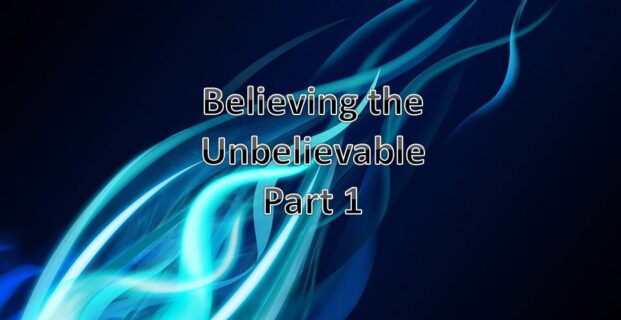TEXT:
‘So they rose early in the morning and went out into the Wilderness of Tekoa; and as they went out, Jehoshaphat stood and said, “Hear me, O Judah and you inhabitants of Jerusalem: Believe in the Lord your God, and you shall be established; believe His prophets, and you shall prosper”’ (2 Chronicles 20:20).
It’s a shame when Christians avoid reading the Old Testament, because with a little digging they would find nuggets of gold hidden in the pages of Israel’s history. God said, ‘I am the Lord, I do not change’ (Malachi 3:6). Therefore we can adopt God’s principles and believe God’s promises because they are as true today as they were thousands of years ago.
The biblical account of King Jehoshaphat’s actions when he faced being overwhelmed by a superior army reveals seven principles that we can learn from.
1. Wrong Associations – ‘Jehoshaphat had riches and honour in abundance; and by marriage he allied himself with Ahab. So Ahab king of Israel said to Jehoshaphat king of Judah, “Will you go with me against Ramoth Gilead?” And he answered him, “I am as you are, and my people as your people; we will be with you in the war” (2 Chronicles 18:1,3).
Jehoshaphat was persuaded by Ahab to support him in a war against Syria. Despite a warning by the prophet Micaiah that the venture would end in disaster1, they still went ahead. Ahab died in battle and Jehoshaphat had to call on God to avoid being killed too.
The Bible says, ‘Can two walk together unless they are agreed’ (Amos 3:3). ‘Do not be unequally yoked together with unbelievers. For what fellowship has righteousness with lawlessness? And what communion has light with darkness? And what accord has Christ with Belial? Or what part has a believer with an unbeliever? And what agreement has the temple of God with idols?’ (2 Corinthians 6:14-16).
‘Let the peace of Christ [the inner calm of one who walks daily with Him] be the controlling factor in your hearts [deciding and settling questions that arise]’ (Colossians 3:15 AMP).
When we ignore God’s warnings, particularly when proceeding without an inner peace , it’s so easy to end up in a wrong association, whether in marriage, business venture or simply a friendship. It’s sobering to note that Jehoshaphat did not seem to have learnt his lesson because later on in life he allied himself with Ahaziah, another wicked king of Israel, in a shipping venture and ended up losing all his ships.2
Why is it we so often fall into the same trap and make the same mistakes over and over again? Why don’t we learn our lesson? It would certainly make life easier!
2. Disciplined – ‘Jehu the son of Hanani the seer went out to meet him, and said to King Jehoshaphat, “Should you help the wicked and love those who hate the Lord? Therefore the wrath of the Lord is upon you’ (2 Chronicles 19:2).
How do we react when we are disciplined? Often we lash out at someone else! The Bible says, ‘My child, don’t make light of the Lord’s discipline, and don’t give up when he corrects you. For the Lord disciplines those he loves, and he punishes each one he accepts as his child’ (Hebrews 12:5-6 NLT).
Jehoshaphat took God’s discipline on the chin and immediately set about honouring God throughout the nation. He brought them back to the Lord God of their fathers and appointed judges reminding them to, ‘Act in the fear of the Lord, faithfully and with a loyal heart’ (2 Chronicles 19:9). This upturn in the nation’s moral and spiritual behaviour certainly helped them to be ready when the next challenge came their way.
3. Crisis – ‘Messengers came and told Jehoshaphat, “A vast army from Edom is marching against you from beyond the Dead Sea. They are already at Hazazon-tamar.” (This was another name for En-gedi.)’ (2 Chronicles 20:2 NLT).
A crisis often comes unexpectedly, but how we reacted to God’s discipline usually determines whether we will end up in defeat or victory.
The crisis we are facing right now may not be a vast army like Jehoshaphat encountered but usually it is beyond our ability to overcome it by our own efforts or resources. At times like this we need to remember God’s promise, ‘The things which are impossible with men are possible with God’ (Luke 18:27).
In Part 2 we shall see how Jehoshaphat reacted to that crisis and what helped to bring him the victory.
Endnotes:
1 2 Chronicles 19:12-27 2 2 Chronicles 20:35-37


Recent Comments